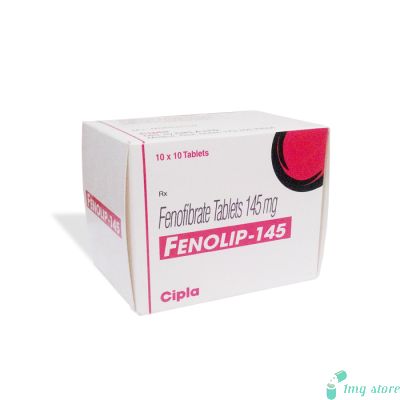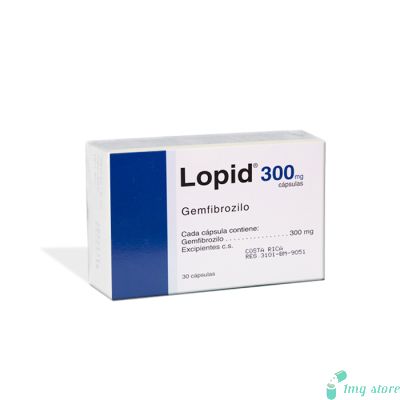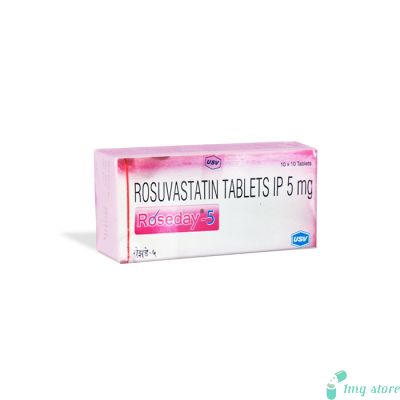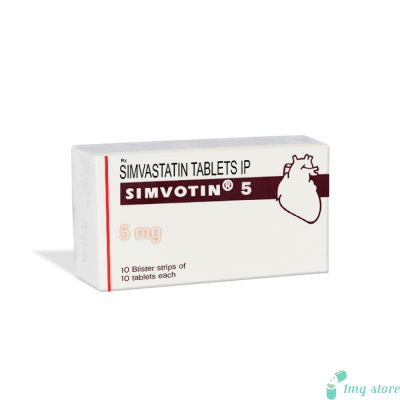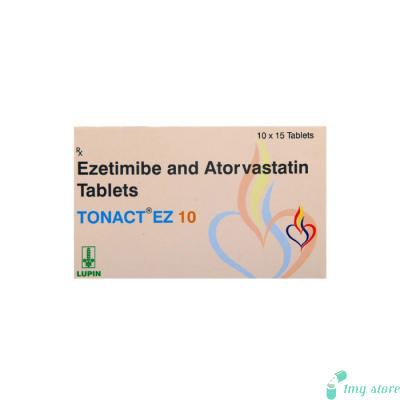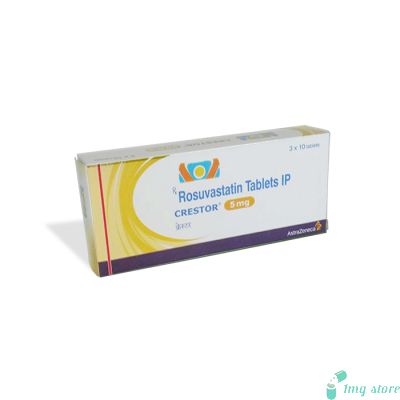Lipicard Tablet (Fenofibrate)
Fenofibrate Tablet is a medication commonly prescribed to manage lipid disorders, such as high cholesterol and high triglyceride levels in the blood. Fenoglide, Tricor, and Lipicard are the brand names for Fenofibrate.
Information About Lipicard Tablet (Fenofibrate)
Fenofibrate is a medication commonly prescribed to manage lipid disorders, such as High Cholesterol and High Triglyceride levels in the blood. This medication is available in various brand names, including Fenolip, Antara, Fenoglide, Lipofen, Lofibra, and Tricor. It plays a crucial role in reducing the risk of cardiovascular diseases by regulating lipid levels. In this guide, we will delve into the dosage information for Fenofibrate tablets, what to do in case of a missed dose, and how to handle an overdose situation. Additionally, for those interested in purchasing Fenofibrate tablets, we will provide information on where to buy them online.
Lipicard Tablet (Fenofibrate) Dosage Information
Fenofibrate tablets are available in different strengths, with the two most common ones being fenofibrate 160 mg tablets and fenofibrate 145 mg tablets. The appropriate dosage depends on your specific medical condition, as well as your healthcare provider's recommendations. It's crucial to follow your healthcare provider's instructions and the dosing schedule provided on the medication label. Do not alter the dosage or stop taking Fenofibrate without consulting your healthcare provider, as doing so may negatively impact your lipid levels and overall health.
Missed Dose
If you happen to miss a dose of Fenofibrate, take it as soon as you remember. However, if it's close to the time for your next scheduled dose, skip the missed dose and continue with your regular dosing schedule. Do not double up on doses to make up for the missed one, as this can increase the risk of side effects without providing any additional benefits. It's essential to maintain a consistent medication routine to achieve the best results in managing your lipid levels.
Overdose
Taking more Fenofibrate than prescribed can lead to an overdose, which can be potentially harmful. If you suspect an overdose or experience severe symptoms such as severe stomach pain, nausea, vomiting, diarrhea, muscle pain, or difficulty breathing, seek immediate medical attention. It's vital to keep Fenofibrate tablets out of the reach of children and store them in a secure place to prevent accidental ingestion.Fenolip, Antara, Fenoglide, Lipofen, Lofibra, and Tricor
These are various brand names for Fenofibrate, and they all contain the same active ingredient, which is fenofibrate. Fenofibrate is classified as a fibric acid derivative and is commonly used to treat conditions associated with high levels of lipids (fats) in the blood.
Fenofibrate Dosage Guide:
When it comes to Fenofibrate, following the correct dosage is crucial for its effectiveness and safety. Your healthcare provider will determine the appropriate dosage based on your lipid profile and overall health. Always take Fenofibrate as prescribed and avoid altering the dosage without consulting your doctor. Regular monitoring of lipid levels is essential to assess the medication's efficacy.
Order Fenofibrate Online:
Conveniently access Fenofibrate tablets online at 1mgstore.com, a trusted platform for purchasing prescription medications. With a valid prescription from your healthcare provider, you can order Fenofibrate from the comfort of your home. This online resource provides a hassle-free way to obtain your prescribed medication.
When Using Lipicard Tablet (Fenofibrate), It Is Important To Take Certain Precautions
Fenofibrate is a medication used to manage lipid disorders, and while it can be highly effective, it's essential to take certain precautions to ensure its safe and effective use:
- Prescription and Consultation: Always take Fenofibrate tablets under the guidance of a healthcare provider. It's a prescription medication, and your doctor will determine the appropriate dosage based on your medical condition and needs.
- Allergies: Inform your healthcare provider of any known allergies to Fenofibrate or other medications. Allergic reactions can lead to severe side effects, so it's crucial to identify and avoid allergens.
- Liver or Kidney Issues: If you have a history of liver or kidney problems, discuss this with your healthcare provider. They may need to adjust the dosage or monitor your liver and kidney function during treatment.
- Pregnancy and Breastfeeding: If you are pregnant or planning to become pregnant, or if you are breastfeeding, inform your doctor. Fenofibrate may not be suitable during pregnancy, and your healthcare provider can advise you on alternative options.
- Alcohol Consumption: Excessive alcohol consumption can contribute to liver problems, and when combined with Fenofibrate, it may increase the risk of liver-related side effects. Limit alcohol intake while taking this medication.
- Blood Tests: Regular blood tests may be necessary to monitor your lipid levels, liver function, and kidney function while using Fenofibrate. Attend all recommended follow-up appointments.
Common infections that are often prescribed for Lipicard Tablet (Fenofibrate) include:
- High Cholesterol (Hypercholesterolemia): Fenofibrate is used to lower elevated levels of LDL cholesterol (often referred to as "bad" cholesterol) in individuals with high cholesterol. It plays a vital role in Heart And Blood Pressure conditions.
- High Triglycerides (Hypertriglyceridemia): It is also effective in reducing high triglyceride levels in the blood, which can increase the risk of heart disease.
- Mixed Hyperlipidemia: Fenofibrate may be prescribed for individuals with both high cholesterol and high triglycerides.
- Atherosclerosis Prevention: Some individuals with a history of cardiovascular disease or other risk factors may use Fenofibrate to reduce the risk of heart attacks and strokes.
- Combination Therapy: Fenofibrate is sometimes prescribed in combination with other cholesterol-lowering medications, such as statins, to achieve better lipid control.
- Diabetic Dyslipidemia: People with diabetes often have abnormal lipid profiles. Fenofibrate can help manage lipid levels in these individuals.
Affordable Fenofibrate Tablets:
At 1mgstore.com, you can find Fenofibrate tablets at competitive prices, making them more accessible for individuals managing lipid disorders. Affordable options ensure that you can adhere to your treatment plan without straining your budget. Check the website for special offers and discounts on Fenofibrate and other prescription medications
A few of the subsequent impacts stemming from Lipicard Tablet (Fenofibrate)
While Fenofibrate is generally safe and effective, like all medications, it can cause side effects. It's essential to be aware of potential side effects and consult your healthcare provider if you experience any of the following:
- Digestive Issues: Common side effects include stomach pain, diarrhea, nausea, and vomiting. Taking Fenofibrate with food can help alleviate these symptoms.
- Muscle Pain: In some cases, Fenofibrate can lead to muscle pain or weakness. If you experience unexplained muscle pain, inform your doctor immediately, as this may be a sign of a rare but severe side effect called rhabdomyolysis.
- Liver Problems: Fenofibrate may affect liver function in some individuals, leading to liver enzyme abnormalities. Regular liver function tests are typically conducted during treatment.
- Gallstones: Fenofibrate can increase the risk of gallstones. If you experience severe abdominal pain, seek medical attention.
- Allergic Reactions: Allergic reactions to Fenofibrate are rare but can be severe. Seek immediate medical help if you experience symptoms such as hives, difficulty breathing, or swelling of the face, lips, tongue, or throat.
- Pancreatitis: Although rare, Fenofibrate may increase the risk of pancreatitis (inflammation of the pancreas). Inform your healthcare provider if you experience severe abdominal pain.
- Blood Sugar Changes: Fenofibrate can affect blood sugar levels, leading to hyperglycemia (high blood sugar) or hypoglycemia (low blood sugar) in some individuals. Diabetic patients should monitor their glucose levels closely.
- Kidney Problems: In rare cases, Fenofibrate may lead to kidney function abnormalities. Regular kidney function tests may be conducted during treatment.
Frequently Asked Queries About Lipicard Tablet (Fenofibrate)
Q1. Can I take Fenofibrate without a prescription?
No, Fenofibrate is a prescription medication. You should only take it under the guidance of a healthcare provider who has assessed your medical condition.
Q2. Are there any dietary restrictions while taking Fenofibrate?
It's advisable to follow a low-fat diet while on Fenofibrate to enhance its effectiveness in managing lipid levels.
Q3. Can I consume grapefruit or grapefruit juice while on Fenofibrate?
Avoid grapefruit or its juice, as it can interact with Fenofibrate and affect its absorption.
Q4. Is Fenofibrate suitable for pregnant or breastfeeding women?
Fenofibrate may not be recommended during pregnancy or breastfeeding. Consult your doctor for safer alternatives.
Q5. How long does it take to see results with Fenofibrate?
The timeframe for noticeable results varies, but regular monitoring and adherence to the prescribed dosage are essential for effectiveness. Consult your healthcare provider for specific expectations.
Significant Drug Interactions that Require Attention For Lipicard Tablet (Fenofibrate)
Interactions between medications can affect their effectiveness and safety. Inform your healthcare provider about all the medications, supplements, and herbal products you are taking to avoid potential drug interactions:
- Blood Thinners (Anticoagulants): Combining Fenofibrate with blood thinners like warfarin can increase the risk of bleeding. Regular monitoring of blood clotting parameters may be necessary.
- Cholesterol-Lowering Medications: Some cholesterol-lowering medications, such as statins, may interact with Fenofibrate, increasing the risk of muscle-related side effects. Your doctor will determine the best combination therapy for your condition.
- Diabetes Medications: Fenofibrate can affect blood sugar levels. If you have diabetes and are taking medications to control blood sugar, close monitoring of your glucose levels is essential.
- Cyclosporine: Combining Fenofibrate with cyclosporine, an immunosuppressant, can increase the risk of kidney problems. Your healthcare provider will adjust dosages as needed.
- Bile Acid Sequestrants: These medications, often used to lower cholesterol, should be taken at different times than Fenofibrate to prevent interference with its absorption.
- Certain Antibiotics: Some antibiotics may interact with Fenofibrate, potentially leading to muscle problems. Inform your doctor if you are prescribed antibiotics while taking Fenofibrate.
- Gout Medications: If you have gout and are taking medications like colchicine, discuss potential interactions with your healthcare provider.
- Alcohol: Excessive alcohol consumption can interact with Fenofibrate and may exacerbate side effects. Limit alcohol intake or avoid it altogether.
| Manufacturer | : | USV Pharma, India |
| Equivalent Brand | : | Fenoglide |
| Generic Search | : | Fenofibrate |







